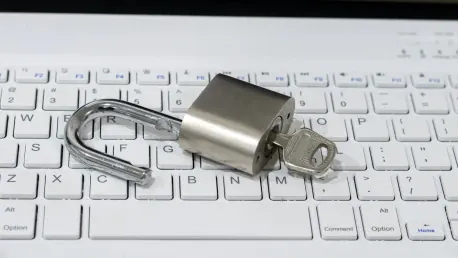Testing your VPN’s encryption during live traffic reveals its vulnerabilities, helping you identify potential weak spots, like data leakages, and better understand connection drops or failures. This guide shows how to test your VPN’s encryption, ensuring you gain a comprehensive understanding during a free VPN trial, before committing to a purchase.
1. Verify IP Leaks Using Command-Line Interface (CLI)
The surest indicator of a VPN with strong privacy controls is its ability to effectively mask your IP address, keeping your true location hidden. Using the command-line interface (CLI) on your desktop simplifies this process. By checking and comparing the IP address on CLI with the results from a site like WhatIsMyIPAddress, you can quickly diagnose IP leak issues. For Mac users, typing ipconfig getifaddr en0 for wired or en1 for wireless in Terminal does the trick. Windows users need to open Command Prompt and type ipconfig /all, then look under the IPv4 address fields.
If your genuine location is revealed, it implies that your VPN’s encryption lacks robustness. Take, for example, our test of Windscribe’s free VPN servers, which failed to mask the IP effectively. This mismatch between the IPv4 address in the Ethernet adapter column and the one provided by the VPN highlights why relying on free VPNs isn’t advisable. Discrepancies like these signal weak encryption, potentially exposing you to various online threats. This initial step lays the groundwork for more expansive encryption tests and helps in making informed decisions about the VPN’s reliability.
2. Utilize Wireshark to Identify Unencrypted Data Traffic
Wireshark is a highly powerful, cross-platform application that will detect data leaks, providing a detailed view of every data stream leaving your internal network. By installing Wireshark, available for free on Windows, Mac, and Linux, you can scrutinize each packet’s journey. Begin by launching Wireshark and navigating to Capture -> Start. For best results, ensure that the free edition of Npcap is installed on Windows, as it aids in seamless captures.
Once operational, a continuous stream of IP address packets will flood the screen. In a VPN example using a top-tier Wireguard-based server, masked IP addresses should be consistently visible, with minimal leaks of unencrypted data. Pink-highlighted regions within Wireshark indicate potential leaks, suggesting an abnormal ARP packet revealing your true, unencrypted IP address. Even top-tier VPN providers are susceptible to vulnerabilities, such as ARP poisoning or other man-in-the-middle attacks. These issues could compromise user data, emphasizing the importance of continuous network monitoring.
This step underscores the need to select VPN services with robust security protocols, resisting attacks designed to expose encrypted communication. Through tools like Wireshark, users can confidently verify their VPN’s integrity and make any necessary adjustments to safeguard online activities.
3. Investigate BrowserLeaks’ Extensive VPN Testing Tools
For those who find manual inspection of data packets daunting, BrowserLeaks offers a suite of tools designed to evaluate VPN performance. These include IP address checkers, WebRTC leak detection, WebGL reports, SSL/TLS client tests, and fingerprinting features like canvas and font. Before utilizing BrowserLeaks, ensure your VPN is active to guarantee that test results accurately reflect the VPN’s performance.
Among the tests, the “Geolocation API” is particularly decisive, retrieving your device’s GPS location within a few meters. If a leading VPN provider fails this test, it reveals substantial encryption weaknesses. In our case, while one prominent VPN provider avoided WebRTC leaks, it stumbled on geolocation accuracy. This underscores the need for comprehensive leak-testing, as different VPNs excel at various aspects of encryption.
BrowserLeaks stands out for its user-friendly interface, requiring only a browser and an active VPN. Its canvas fingerprint test is notably rare among free services, providing a detailed analysis of “browser fingerprinting” – a unique digital identity formed from browsing habits. Understanding how effectively a VPN masks such digital signatures is essential for maintaining privacy. In our tests, the VPN provider couldn’t obscure the unique signature, suggesting significant privacy implications.
4. Conduct Detailed Tests with DNSLeakTest
DNS (Domain Name System) influences all online activities, translating domain names into IP addresses. A reliable VPN must mask DNS requests to conceal your actual IP address. DNSLeakTest is a specialized website offering standard and extensive tests to uncover DNS leaks, evaluating the VPN’s effectiveness comprehensively. Lower-tier and free VPNs often fail to secure DNS requests, prompting concern.
During testing, running multiple iterations across different servers provides deeper insights into potential vulnerabilities. DNSLeakTest offers continuous monitoring, making it crucial for identifying IP and WebRTC leaks. For instance, while DNSLeakTest gives real-time data, those seeking historical records might prefer GlassWire, a freemium provider offering detailed insights for network admins.
By frequently monitoring these test results, users can gauge the VPN’s operational consistency and adapt accordingly. Given that DNS leakage exposes critical user information, maintaining vigilance is essential. This step reinforces the understanding that thorough testing isn’t just a preliminary measure but a continuous process vital for preserving online security.
5. Employ Your VPN Provider’s Integrated Encryption Test Tools
When you test your VPN’s encryption during live traffic, you expose its potential weaknesses, such as data leaks or connection drops. This process helps you understand how robust your VPN’s security measures are and whether it can reliably protect your data during real-world use. This guide provides detailed instructions on how to test your VPN’s encryption effectiveness, crucially during a free trial period. This lets you evaluate the VPN’s performance before deciding to buy a subscription. By thoroughly testing the VPN’s encryption and performance, you can make an informed decision about whether it meets your security needs. You will be able to detect any issues that could compromise your personal data, such as weak spots that allow data to escape or vulnerabilities during lost connections. Therefore, understanding your VPN’s capabilities and limitations ensures that you are choosing a product that can give you the security and reliability you need in a VPN service, ultimately preventing you from investing in a potentially flawed product.









